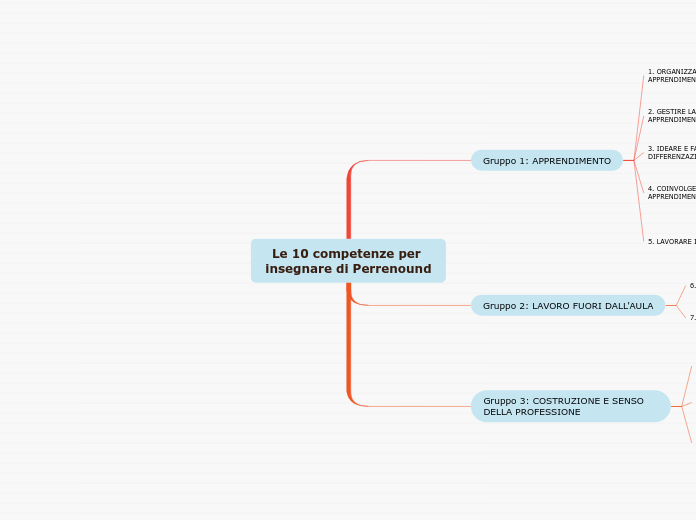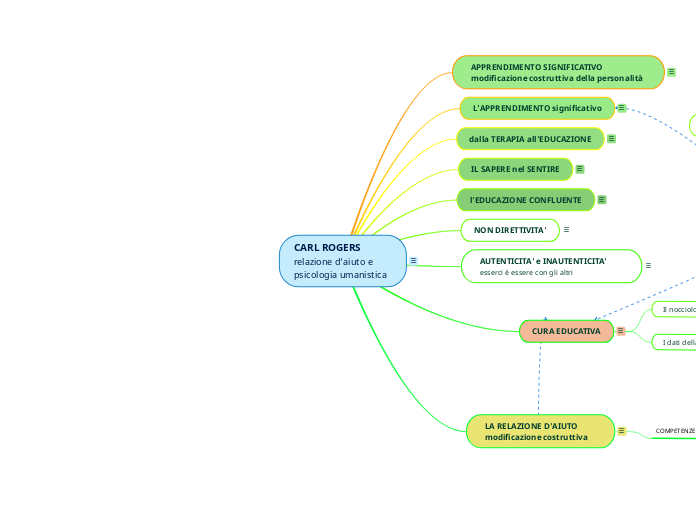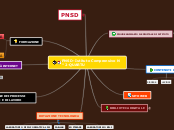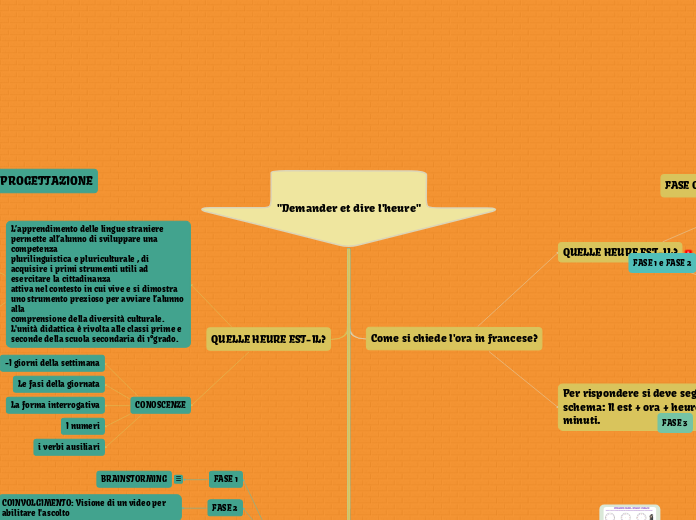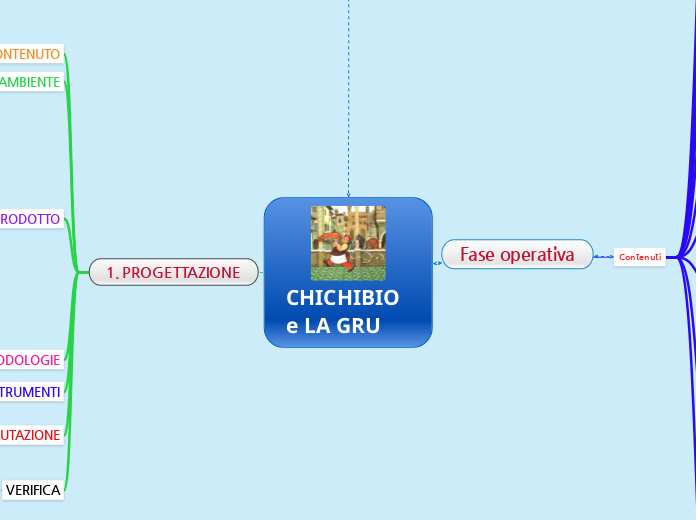Le 10 competenze per insegnare di Perrenound
To name your story, you have to think about the overall message and what you want your audience to understand from the story. Also, make it relevant and easy to remember.
Gruppo 3: COSTRUZIONE E SENSO DELLA PROFESSIONE
The ending of a story is essential. We all know that if the ending is weak, what happened before loses its importance. So make it unpredictable, but fair. A resolved ending answers all the questions and ties up any loose threads from the plot.
10. GESTIRE LA PROPRIA FORMAZIONE CONTINUA
L'insegnante deve garantire e dimostrare di possedere una solida formazione che può ritenersi tale solo se l'insegnante è disponibile ad aggiornarsi e formarsi continuamente, adeguandosi a quella che viene definita lifelong learning
Sottoargomento
9. AFFRONTARE I DOVERI E I DILEMMI ETICI DELLA PROFESSIONE
This is the closure section of the story.
See examples of possible outcomes below:
- all problems have been solved
- it's clear how each one of your characters ends up
- your main character is transformed by the challenge
Di assoluta importanza risulta la condivisione di regole e di valori per creare una comunità educante consapevole dei propri diritti e dei propri doveri
Try answering these questions in order for you to come up with a closure:
- Have all problems been solved?
- Is it clear what happens with all your characters in the story?
- Has the challenged transformed your main character?
- How do the characters feel in the end?
8. SERVIRSI DI NUOVE TECNOLOGIE
This is the moment when the main character surpasses the last obstacle and finally faces their greatest challenge.
The climax usually follows one of these patterns:
- realization
- resolution
- choice
Type in your answer.
In vista dei nuovi cambiamenti a cui è soggetta la nostra società è importante che l'insegnante si serva di strumenti tecnologici- didattici innovativi per favorire apprendimenti adeguati e al passo con i tempi
Gruppo 2: LAVORO FUORI DALL'AULA
The middle of the story is where you add layers of complications that will lead to the end. Reveal more about the character's journey. Did their personality go through changes? How did they overcome the challenges? And as you build up the story’s central conflict, make it more personal to that character. Also, from the middle act, you have to lead into the final act.
7. INNFORMARE E COINVOLGERE I GENITORI
Importante creare una rete di collaborazione con le famiglie, i genitori devono essere coinvolti sia nei momenti collegiali che sulla condivisione di un progetto educativo
6. PARTECIPARE ALLA GESTIONE DELLA CLASSE
Each story has a main character and that character usually needs to solve a problem or challenge. The character's challenge is the one that creates tension throughout the story.
Indispensabile condividere e costruire un progetto d'istituto che veda coinvolti tutti gli attori
Type in any other challenges which other characters in the story need to face.
Other challenges
Gruppo 1: APPRENDIMENTO
In the beginning of the story (or the exposition), you will need to introduce the setting and characters. You might also want to introduce the main conflict. This part of the story is important because it gives the reader necessary background information and maybe even a first insight into a character’s personality.
5. LAVORARE IN GRUPPO
Per un apprendimento attivo è importante che all'interno della classe vi sia un clima sereno e di collaborazione tra i pari. L'insegnante deve proporre attività di gruppo per incentivare la collaborazione e il confronto tra i compagni
4. COINVOLGERE GLI ALUNNI NEI LORO APPRENDIMENTI E NEI LORO LAVORI
L'insegnante deve stimolare continuamente la curiosità dei bambini e infondere loro il desiderio di scoprire e imparare. Deve stimolare l'autovalutazione e rendere consapevole l'allievo del suo percorso di apprendimento
3. IDEARE E FARE EVOLVERE GLI STRUMENTI DI DIFFERENZAZIONE
I docenti devono proporre delle proposte didattiche che tengano conto delle specificità di ogni singolo studente
2. GESTIRE LA PROGRESSIONE DEGLI APPRENDIMENTI
L'insegnante deve fornire gli strumenti necessari agli alunni affinché essi possano realizzare dei bilanci periodici circa le proprie capacità, i punti di forza e le loro debolezze
1. ORGANIZZARE ED ANIMARE SITUAZIONI DI APPRENDIMENTO
L'insegnante deve conoscere i contenuti delle discipline e progettare attività coinvolgenti per i bambini affinché il trasferimento dei contenuti avvenga in maniera chiara e rapida
